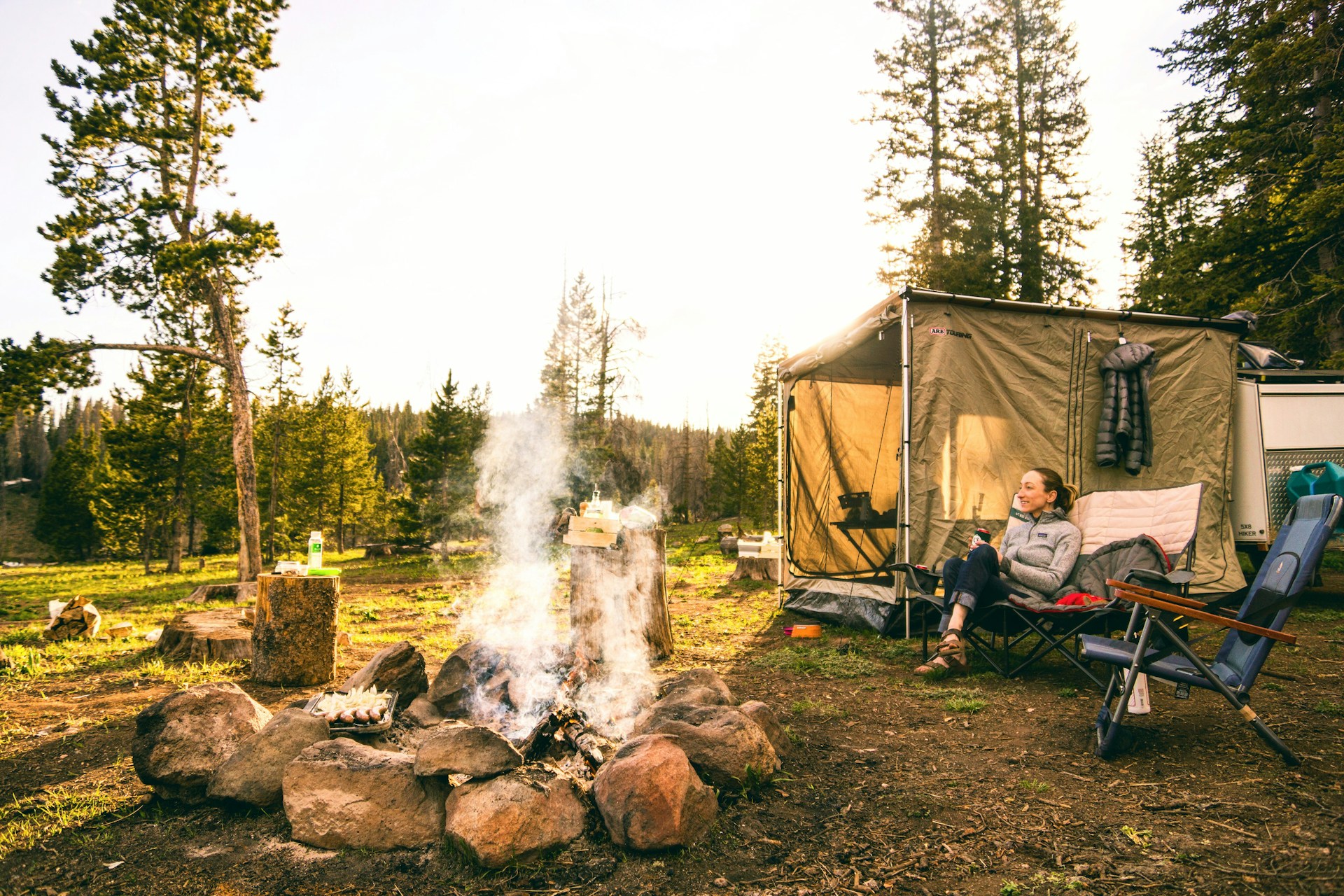Camping near the UK’s beautiful beaches offers a wonderful opportunity to connect with nature, unwind by the sea, and explore the great outdoors. However, it is crucial to camp responsibly to avoid disturbing the local wildlife, particularly nesting birds. These birds play an essential role in the ecosystem and need our respect and protection. By following some simple guidelines and choosing the right camping spots, you can enjoy a seaside adventure while leaving no trace.
Choosing the Right Campsite
When planning a beach camping trip, the choice of campsite is crucial. Selecting a spot that respects wildlife habitats ensures a harmonious experience with nature.
Also to read : Crafting the Ultimate Camping Adventure: Exploring UK Distilleries and Breweries on Your Journey
Beach Camping vs. Woodland Camping
Beach camping provides the soothing sounds of the ocean and easy access to water activities like sea kayaking and whitewater touring. On the flip side, woodland camping offers a more secluded atmosphere and the unique charm of sleeping under a canopy of trees. The Lake District and national parks in the UK offer a mix of both environments, allowing you to choose based on your preferences.
Official Campsites and Wild Camping
For the best experience, check for official campsites that are aware of the local wildlife and have measures in place to protect nesting birds. These campsites often provide amenities like car park spaces and dog-friendly areas, ensuring both convenience and responsibility. However, if you prefer the thrill of wild camping, ensure you research and follow the regulations specific to the area. Many national parks have designated areas where wild camping is permitted.
Also to see : Essential Guide to Crafting the Perfect Camping Adventure Along the UK”s Scenic Coastal Gems
Responsible Camping Practices
If you decide to camp in a woodland or forest campsite, stay on established paths and set up your tent far from bird nesting areas. Look for signs or posts joined by park authorities indicating restricted zones. Always read any information boards at the campsite for specific guidelines. Remember, a wildlife-friendly campsite is not only good for the environment but also often thankful times for campers seeking serenity.
Essential Gear for a Beach Camping Trip
Packing the right gear is essential for a successful beach camping trip. From your tent to your sleeping bag, having the appropriate equipment can make your experience more enjoyable and environmentally friendly.
Camping Gear Basics
Your camping gear should include a durable, weather-resistant tent suitable for the coastal climate. Consider getting a gear sale tent to save money while ensuring quality. Your sleeping bag should be warm enough for cooler nights by the sea but breathable for warmer evenings. Bring lightweight and compact camping furniture if necessary.
Specialized Gear for Beach Activities
If you plan on engaging in activities like sea kayaking or whitewater touring, ensure you have the appropriate kayaking gear. This includes a life jacket, paddle, and waterproof bags for your belongings. Investing in quality gear can enhance your experience and safety.
Leave No Trace
Adhering to the leave no trace principles is fundamental. Bring reusable containers and bags to minimize waste. Check your site for any trash before you leave and take everything you brought with you. Avoid using single-use plastics. If you bring a portable stove, ensure it’s safe to use on the beach and minimizes environmental impact.
Understanding and Protecting Nesting Birds
Knowing when and where birds nest can help you avoid disturbing them. Different bird species have varying nesting seasons, and beaches often serve as crucial habitats.
Identifying Nesting Areas
Look for areas roped off or marked with signs indicating the presence of nesting birds. Often, these areas are clearly marked to prevent accidental disruption. Read any guidelines provided by park authorities and follow them diligently.
Timing Your Camping Trip
Planning your camping trip outside of the peak nesting seasons can reduce the risk of disturbing birds. For many species, the nesting season typically spans from March to August. Opting for a camping trip in late summer or early autumn can be a great way to enjoy the beach while being bird-friendly.
Respecting Wildlife
Even if you don’t see signs of nesting birds, always be cautious. Keep a safe distance from any birds you encounter and avoid areas with dense vegetation where nests may be hidden. Bringing your dog? Ensure it’s on a leash to prevent it from disturbing wildlife. By respecting bird habitats, you contribute to their protection and the overall health of the ecosystem.
Activities and Exploration Near UK Beaches
Camping near UK beaches isn’t just about setting up a tent and enjoying the view. There are numerous activities to make your experience unforgettable.
Water-Based Activities
The UK offers fantastic opportunities for water-based activities. Sea kayaking along the coast lets you explore hidden coves and observe marine wildlife. Make sure to check local regulations and suggested routes. For the adventurous, whitewater touring offers a thrilling way to navigate the coastline’s rivers.
Hiking and Exploring
Many beach areas are adjacent to national parks and woodlands, providing excellent hiking trails. Explore these areas while sticking to marked paths. This not only prevents habitat destruction but also ensures you don’t get lost. The Lake District offers stunning trails that combine beach and forest scenery, making it a prime destination for outdoor enthusiasts.
Educational Opportunities
Take the time to learn about the local wildlife and conservation efforts. Many parks offer educational posts joined by rangers or local experts. These posts offer insights into the local ecosystem and ways you can help protect it. Participating in these programs can enrich your camping experience and deepen your appreciation for the natural world.
Camping near UK beaches offers a unique blend of adventure, relaxation, and a deep connection with nature. By selecting the right campsite, packing the essential gear, respecting wildlife, and engaging in eco-friendly activities, you ensure a memorable and responsible camping experience. Always follow local guidelines to protect nesting birds and other wildlife, ensuring these beautiful locations remain pristine for future generations.
Whether you choose to camp in a forest campsite, a national park, or right on the sandy shores, remember the word respect. Respect the land, the wildlife, and your fellow campers. This approach not only enriches your experience but also preserves the natural beauty of the UK’s beaches for everyone to enjoy.














